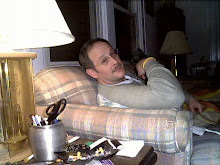 At the turn of the seventeenth century Caravaggio was the buzz of the Roman art world. Among his most famous paintings is The Calling of St Matthew which depicts the moment when Jesus chose Matthew (his Hebrew name was Levi) to join His Apostles. It's a painting that's always fascinated me.
At the turn of the seventeenth century Caravaggio was the buzz of the Roman art world. Among his most famous paintings is The Calling of St Matthew which depicts the moment when Jesus chose Matthew (his Hebrew name was Levi) to join His Apostles. It's a painting that's always fascinated me.Matthew, a tax collector, sits at a table in his counting house along with his foppish friends. Like a schoolboy who doesn't know the answer to the question posed by his teacher, Matthew's gaze is directed towards the coins stacked in front of him on the table, studiously avoiding eye contact with Jesus. Our Lord stands on the right side of the painting, a wedge of light from an open window passes over His shoulder, falling upon the reluctant Matthew. The most striking thing about Jesus though (and I must admit that I had to have this pointed out to me, it's not something I noticed on my own) is his right hand which He has extended towards Matthew. His index finger is pointed directly towards Matthew, his wrist slightly bent, the remaining three fingers and his thumb curled loosely towards His palm. It is the same positioning of the hand used by Michelangelo to depict God's reach towards man in the Creation of Adam painted on the ceiling of the Sistine Chapel. Caravaggio must have copied this on purpose from Michelangelo's masterpiece to show that Matthew is not merely being called to the discipleship of an itinerant preacher, he's being called to be a new creation. He knows this and he fears that call. After all, Matthew is the one among those whom Jesus calls who stands to lose the most. Unlike Adam, Matthew doesn't reach back towards God, his hands remain on the table, fondling his coins.
As a tax collector, St Matthew made a pretty good living. Tax collectors were notorious for their corruption, "cooking the books", as it were, charging taxpayers too much, turning in too little to the government and pocketing the profits. He must have enjoyed the favor of some patron among the Roman administration since such appointments were not handed out to indigenous people without such influence. Further, Matthew's circle of friends would have been limited to other tax collectors since the Jews would not associate with employees of the hated Roman regime, and Romans would look down on natives of their colonized regions as second rate persons at best. But, Our Lord must have seen something in this tax collector. Somewhere within Matthew, Jesus recognized something worthy of extending this call. In the end, though, Matthew accepts the call.
We hear the same call that Matthew heard. Christ calls us to be new creations, but like Matthew, we balk. There's a lot of baggage we haul around with us, so many things we'll have to change. We'll find times when being created anew conflicts with our accumulation of material goods. We fear the effect becoming a new creation will have on our lifestyles, our jobs, our daily life. We are afraid of what our friends will say. We, too, hesitate to reach back towards God. We're content to quietly accept the call, to play lip service to it, but living the call is another issue.
We eagerly await a new heaven and a new earth. We long for a world which acknowledges the dignity of all men before God. We desire a world without evil, sickness, and death, but God doesn't seem to plan to do it in one fell swoop. He's calling us one at a time to become His agents in this world. He reaches towards us to effect the repair of the breach between us, and it's up to us to reach back by living our beliefs in this world, like Matthew did in becoming one of the Twelve, in becoming the first to record the words and deeds of Christ to communicate them to others.
Til next time, all the best. Joe
